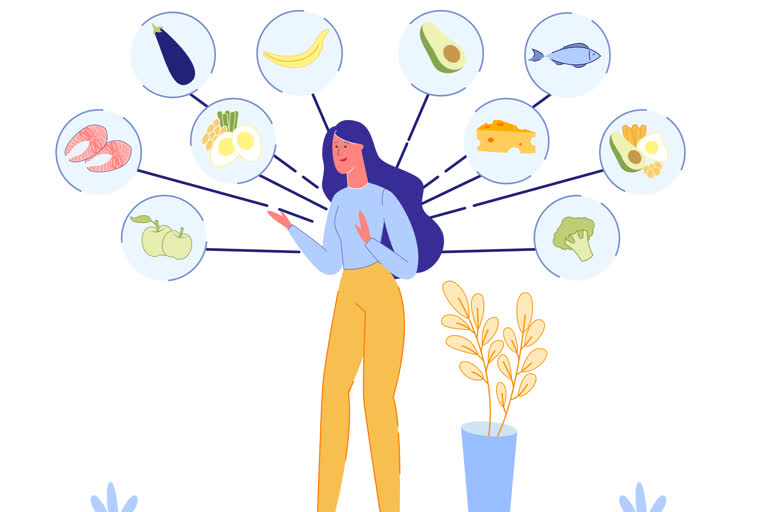Cancer and its treatments can change the way you eat by affecting the way your body tolerates certain foods and uses nutrients. Etv Bharat Sukhibhava spoke to Rohini Diniz, nutritionist at Panaji, Goa with an enriching experience in Nutrition Education.
Eating the right kinds of food before, during, and after treatment helps strengthen the immune system thereby reducing the risk of infection and also helps one feel better, more energetic, rebuild tissues damaged during surgery, chemotherapy, or radiation, maintain suitable weight or help regain lost weight, cope better with the side effects of the treatment and recover faster
Eating well means eating a variety of foods and beverages that will give your body the nutrients it needs to help fight the disease. Well-nourished patients are able to cope with the side effects of treatment better and have a good prognosis(the likely course of a medical condition) and a better quality of life.
When one is healthy, eating enough food to get the nutrients and calories needed is not usually a problem. But when being treated for cancer, healthy eating can be difficult especially if one has side effects or just does not feel well. During cancer treatment, one may need to change the diet to help build up your strength and withstand the effects of cancer and its treatment. This may mean eating things that are not normally recommended when one is in good health.
- Carbohydrates are the primary source of energy for the body and brain and need to be eaten in adequate amounts. Starchy root vegetables and whole grains are good choices. Refined sugar should be avoided and small amounts of jaggery or honey can be used to added calories and taste to food especially when one has no appetite to eat or is unable to eat a large amount of food at one time.
- People with cancer require more protein than usual as protein is needed for the growth and repair of body cells and tissues and to strengthen the immune system particularly after surgery, chemotherapy, or radiation therapy. Inadequate protein intake results in weight loss, wasting, and lowered resistance to infections making it longer to recover from the illness. Good sources of protein include fish, egg, legumes, pulses, dals, nuts, and nut butter such as peanut butter and tahini (sesame seeds butter). Avoid dairy products, red meats, and chicken.
- Fats play an important role in nutrition as they serve as a rich source of energy, insulate body tissues, and help absorb and transport fat-soluble vitamins A, D, E, and K through the blood.
- The body needs small amounts of vitamins and minerals to help it function properly. Vitamin A, C, and E and minerals such as selenium and zinc function as antioxidants thereby protecting the body cells from the damaging effects of free radicals. Fruits and vegetables are good sources of both nutrient and phytonutrient antioxidants and need to be part of the diet when undergoing treatment for cancer.
- Water and fluids are vital to health as all body cells need it to function properly. Inadequate water intake or loss of water through vomiting or diarrhea can result in dehydration which can be fatal. When being treated for cancer, ensure that you drink at least 7-8 glasses of water in addition to the other beverages throughout the day. Ensure that extra fluids are taken when one is vomiting or has diarrhea during cancer treatment.
For more queries, on breast cancer and nutrition contact rohinidiniz@gmail.com



